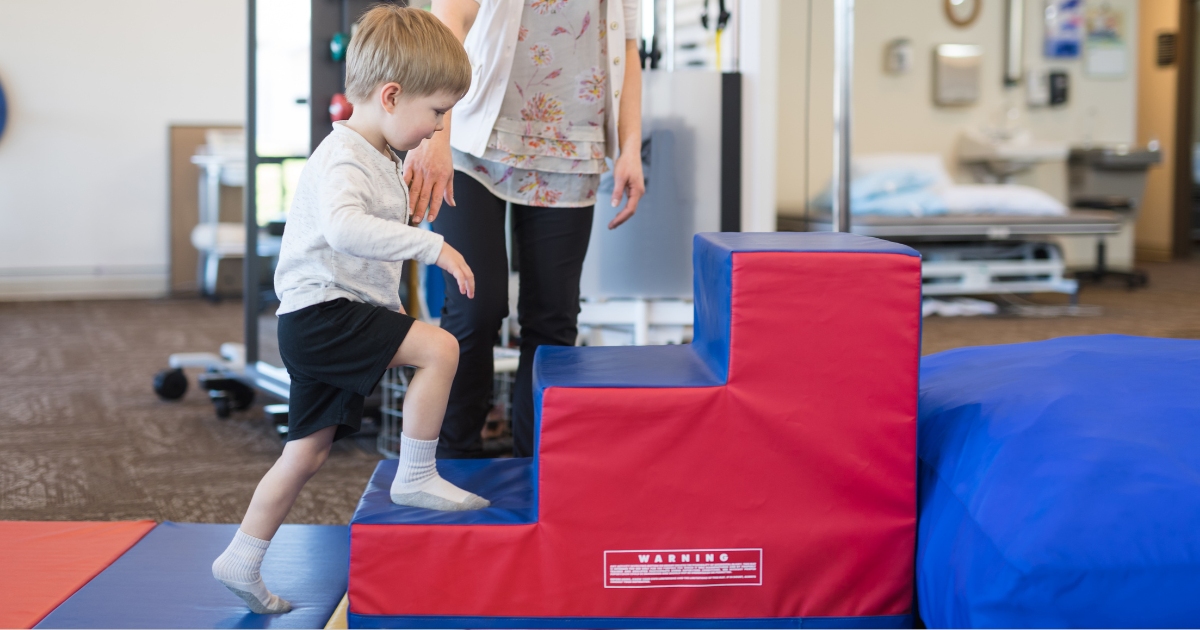The Transformative Power of Intensive Physiotherapy for Individuals with Prader-Willi Syndrome

Prader-Willi Syndrome (PWS) is a complex genetic condition that affects many aspects of an individual’s life, including growth, metabolism, and muscle function. While there is currently no cure for PWS, Allied Health intervention programs, from as early in life as possible, have proven to be highly beneficial in improving the physical capabilities and quality of life of those living with this syndrome. This article explores the advantages of intensive physiotherapy and the positive outcomes it can achieve for individuals with PWS.
Understanding Intensive Physiotherapy
Intensive physiotherapy programs are designed to provide concentrated and comprehensive therapeutic interventions over a specific period. These programs involve a variety of exercises and techniques tailored to meet the unique physical needs of the individual. The goal is to address the hypotonia (low muscle tone) and other physical challenges associated with PWS to promote overall development and well-being.
Enhancing Muscle Strength and Coordination
One of the primary physical challenges for individuals with PWS is hypotonia, which can lead to delayed motor skills and reduced physical activity. Intensive physiotherapy focuses on strengthening muscles through targeted exercises. Research has shown that individuals with PWS who participate in intensive physiotherapy programs experience significant improvements in muscle strength, balance and coordination. For instance, a study published in the American Journal of Medical Genetics found that children with PWS who underwent intensive physiotherapy showed marked improvements in motor function.
Improving Motor Skills
Motor skill development is crucial for the independence and quality of life of individuals with PWS. Intensive physiotherapy programs often include activities that enhance both fine and gross motor skills. These activities can range from balance and coordination exercises to more complex movements that involve multiple muscle groups. According to a study in the Journal of Child Neurology, children with PWS who engaged in intensive physiotherapy demonstrated significant progress in motor skills, allowing them to perform daily activities with greater ease and confidence.
Reducing the Risk of Obesity
Obesity is a common and serious concern for individuals with PWS due to a combination of low muscle tone, decreased physical activity, and an insatiable appetite. Physiotherapy helps mitigate this risk by promoting regular physical activity and improving overall fitness. Engaging in structured physiotherapy sessions can increase energy expenditure and help maintain a healthy weight. The Journal of Pediatric Endocrinology and Metabolism reported that individuals with PWS who participated in regular physiotherapy sessions had a lower body mass index (BMI) and improved cardiovascular health compared to those who did not.
Enhancing Flexibility and Reducing Pain
Flexibility is often compromised in individuals with PWS due to muscle stiffness and joint abnormalities. Intensive physiotherapy programs incorporate stretching exercises to enhance flexibility and range of motion. These exercises can also help reduce musculoskeletal pain, a common issue in individuals with PWS. A study published in the Journal of Musculoskeletal & Neuronal Interactions found that intensive physiotherapy led to significant reductions in pain and improvements in joint mobility for individuals with PWS.
Promoting Independence and Self-Esteem
The physical improvements achieved through intensive physiotherapy have a profound impact on the overall well-being of individuals with PWS. As their physical abilities improve, so does their independence in performing daily tasks. This newfound independence boosts self-esteem and confidence, contributing to a higher quality of life. Family members also benefit from seeing their loved ones achieve greater physical capabilities and autonomy.
Achieving Long-Term Success
The benefits of intensive physiotherapy for individuals with PWS are not limited to short-term improvements. These programs lay the foundation for long-term success by equipping individuals with the physical skills and endurance needed to thrive in various aspects of life. Families play a crucial role in this journey, and intensive physiotherapy programs often include family training and support to ensure the continuity of therapeutic strategies at home.
Conclusion
Intensive physiotherapy offers a holistic approach to addressing the physical challenges associated with Prader-Willi Syndrome. Through targeted and comprehensive interventions, these programs can lead to significant improvements in muscle strength, motor skills, flexibility, and overall physical health. By investing in intensive physiotherapy, we can help individuals with PWS achieve their full potential and lead fulfilling lives.
For more information on intensive physiotherapy programs and support for individuals with Prader-Willi Syndrome, please contact the Prader-Willi Syndrome Association of Victoria.
References:
- Dykens, E. M., et al. (2000). “Behavioral Phenotype in Prader-Willi Syndrome: Relationship to Genetic Subtype.” American Journal of Medical Genetics.
- Butler, M. G., et al. (2002). “The Impact of Physical Therapy on Motor Skills in Children with Prader-Willi Syndrome.” Journal of Child Neurology.
- Whittington, J., et al. (2004). “Cognitive and Behavioral Aspects of Prader-Willi Syndrome.” Journal of Intellectual Disability Research.
- Cass, H., et al. (2007). “The Role of Speech and Language Therapy in Enhancing Communication in Children with Prader-Willi Syndrome.” International Journal of Pediatric Otorhinolaryngology.
